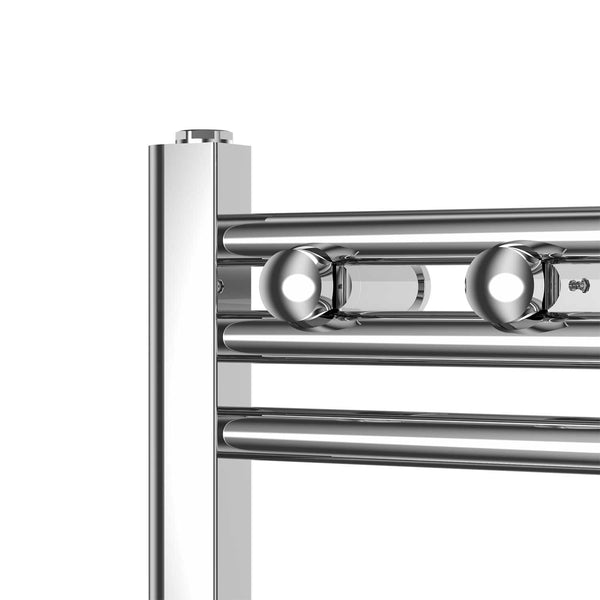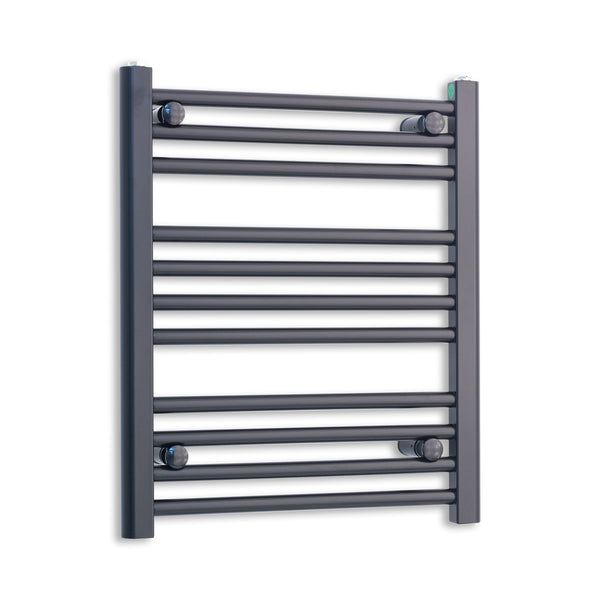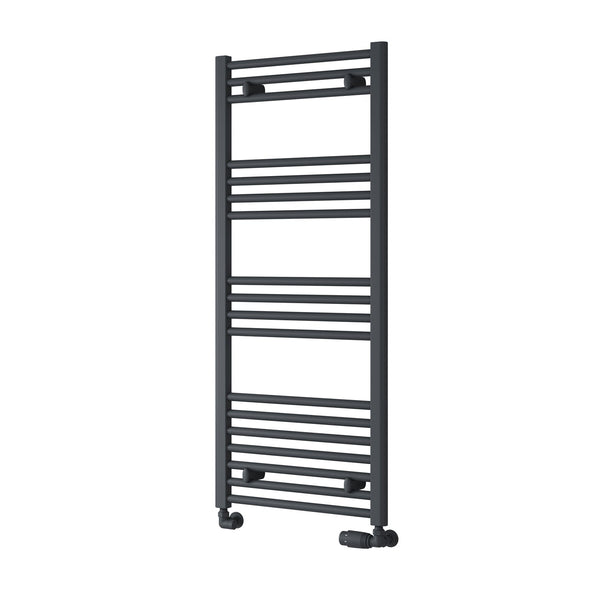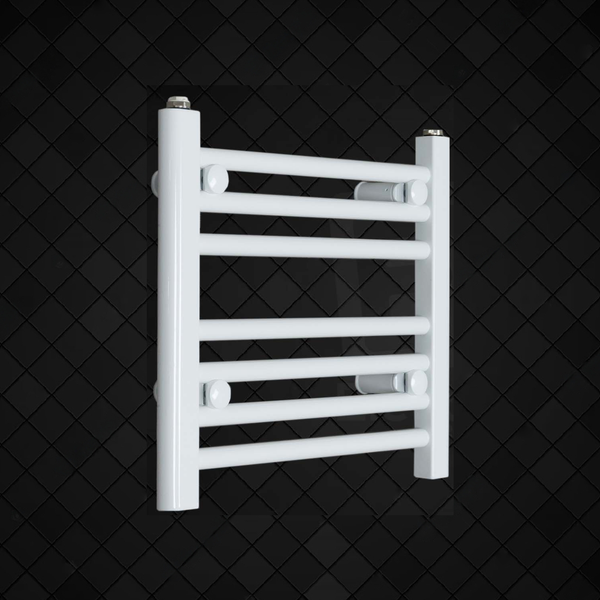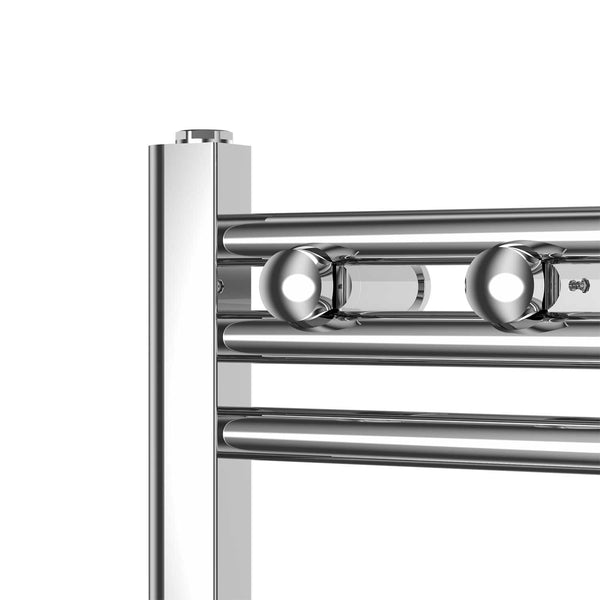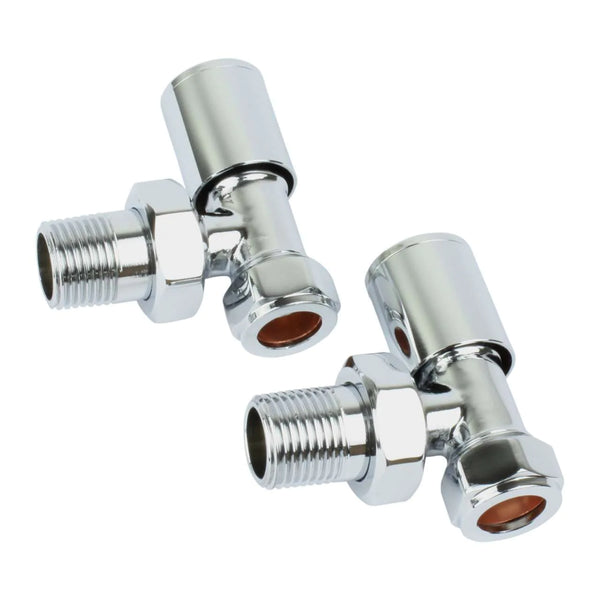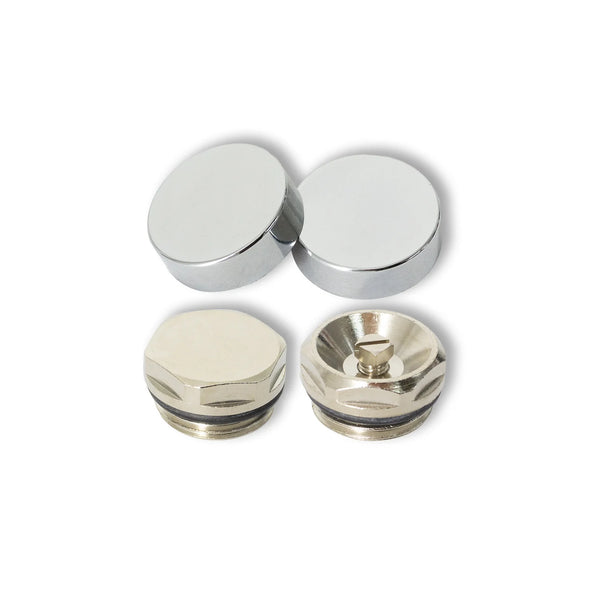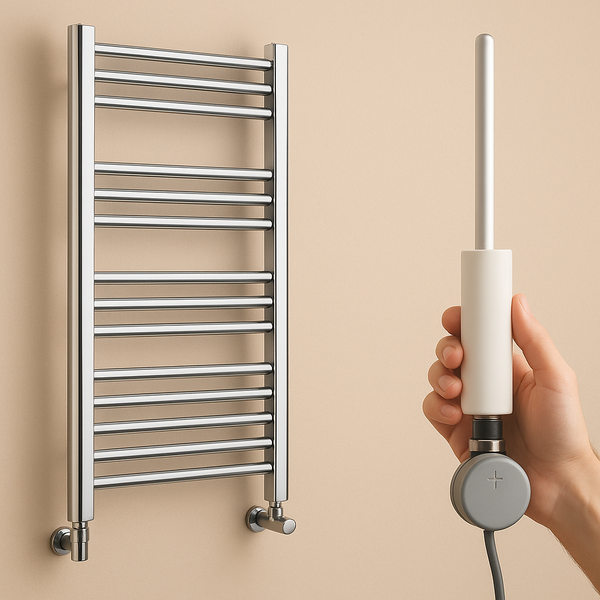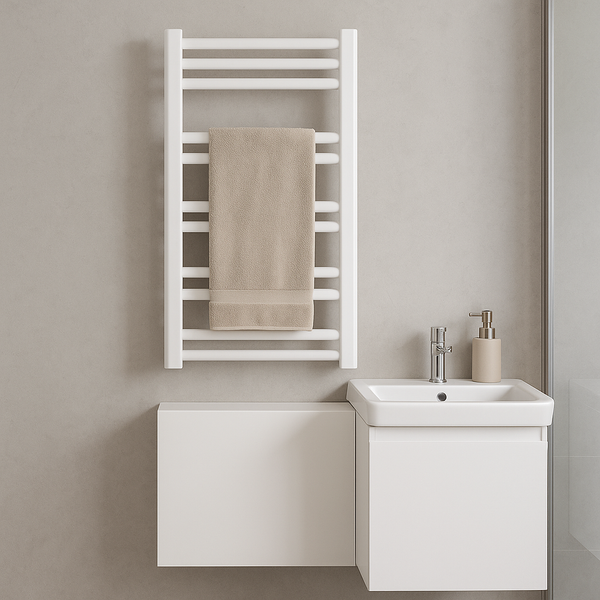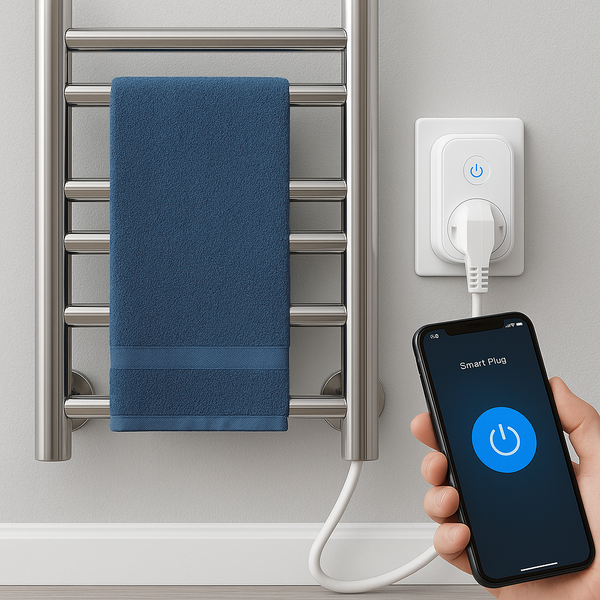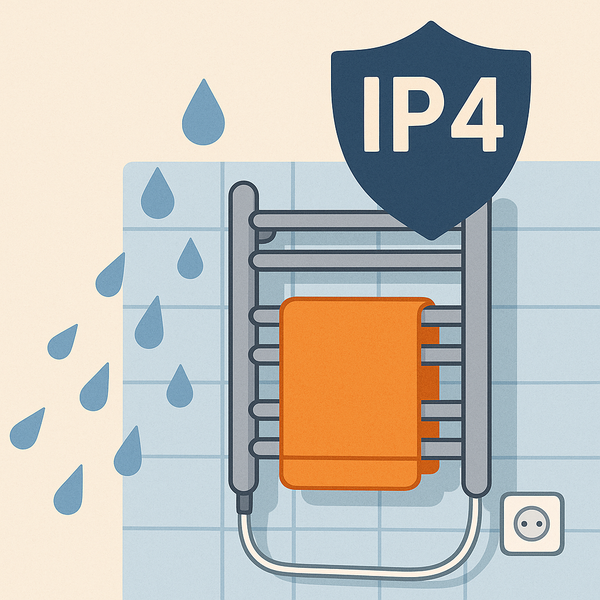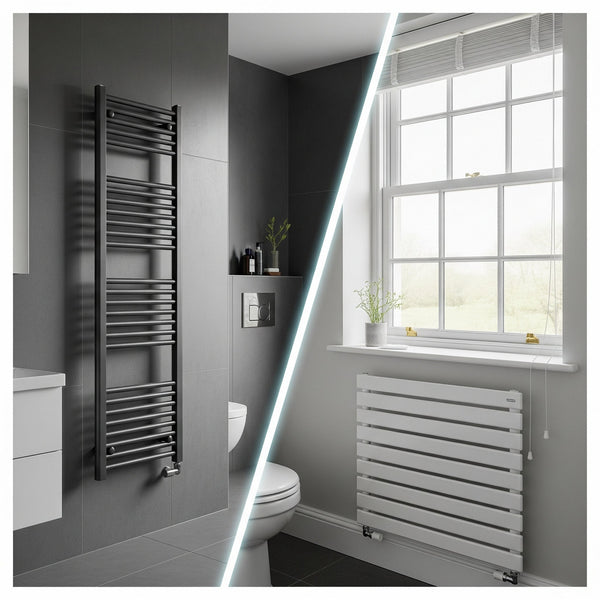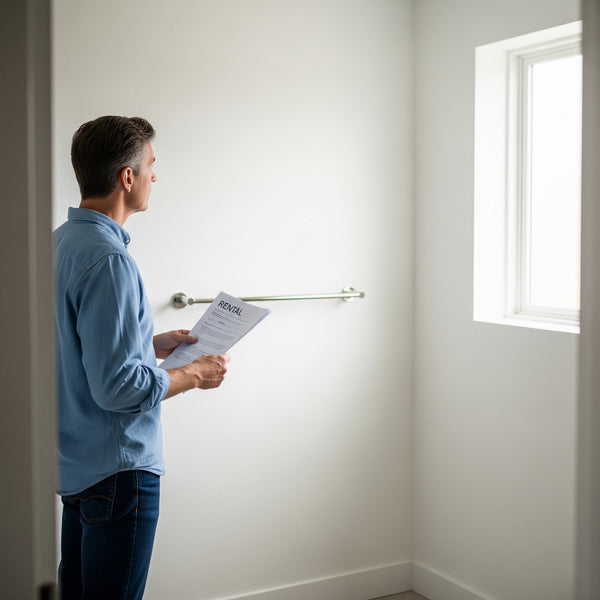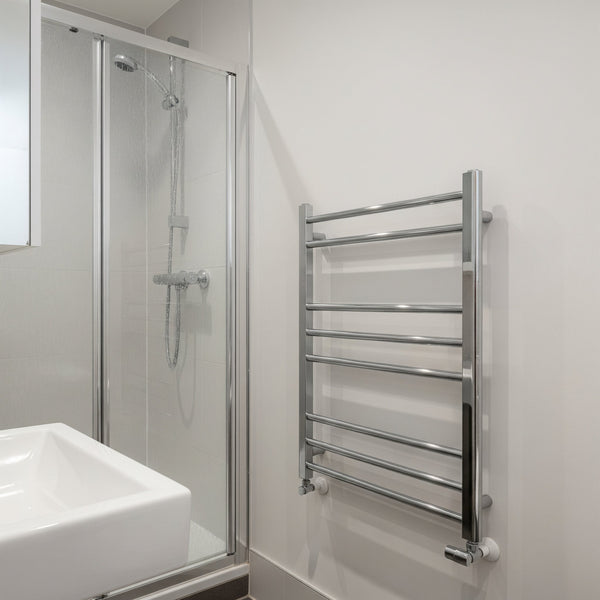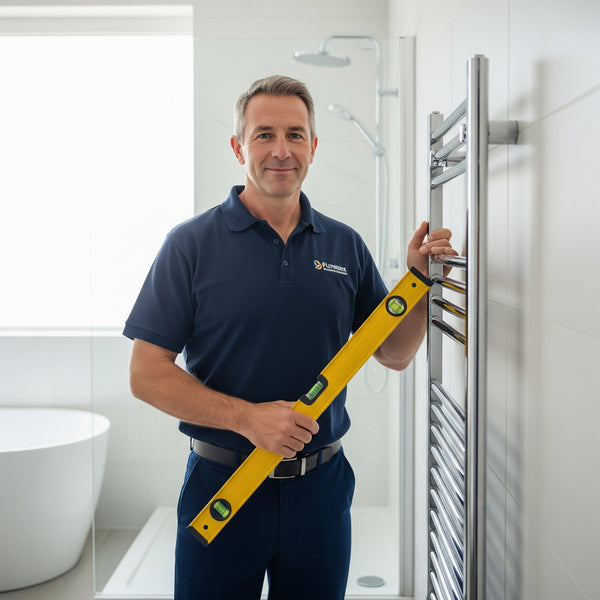What is an IP Rating and Why Does It Matter for Your Bathroom's Electric Towel Rail?
When you're Browse for a new electric heated towel rail, you'll encounter a host of technical specifications. While things like wattage and dimensions are easy to understand, you'll also see a code that looks like this: IPX4. This isn't just a random string of characters; it's an IP Rating, and it is arguably the single most important safety feature you need to pay attention to. In a room where water and electricity are in close proximity, this rating is your guarantee of safety.

But what does it actually mean? Understanding IP ratings is essential for ensuring your bathroom is not only stylish and comfortable but also fully compliant with UK electrical safety regulations. This expert guide from Companyblue will break down the jargon, explain what an IP rating is, detail the bathroom electrical zones, and show you exactly what to look for to ensure your new towel rail is both safe and legal.
Decoding the IP Rating: What the Numbers Mean
An IP rating, which stands for "Ingress Protection," is a universal standard that classifies how effectively an electrical enclosure protects its internal components from the intrusion of foreign bodies (like dust and fingers) and moisture (water). The rating consists of the letters 'IP' followed by two digits.
The First Digit (0-6): Protection against Solids
This number tells you how well the unit is protected from solid objects.
- 0: No protection.
- 1: Protection from objects larger than 50mm (e.g., a hand).
- ...
- 6: Completely dust-tight.
For a towel rail, you might see this digit, or you might see an 'X' (e.g., IPX4). The 'X' simply means that the product hasn't been tested for solid particle protection, which is common for appliances where water protection is the primary concern.
The Second Digit (0-8): Protection against Water (The Crucial One)
This is the critical number for any bathroom appliance. It tells you how well the unit is protected against moisture.
- 0: No protection.
- 1: Protected against vertically dripping water.
- 2: Protected against water dripping at a 15° angle.
- 3: Protected against spraying water.
- 4: Protected against splashing water from any direction. This is the key level for towel rails.
- 5: Protected against low-pressure jets of water.
- 6: Protected against high-pressure jets of water.
- 7: Protected against temporary immersion in water.
- 8: Protected against continuous submersion in water.
Connecting IP Ratings to UK Bathroom Electrical Zones
To understand why a specific IP rating is needed, you must understand bathroom zones. UK Wiring Regulations (BS 7671) divide a bathroom into areas based on their proximity to water sources to define what electrical equipment can be safely installed.
- Zone 0: The area inside the bath or shower tray itself. Only specific low-voltage (12v) equipment with an IPX7 rating or higher is permitted.
- Zone 1: The area directly above the bath or shower up to a height of 2.25m from the floor. Equipment here must have at least an IPX4 rating.
- Zone 2: This is the most relevant zone for towel rails. It's the area stretching 0.6 metres (60cm) horizontally outside the perimeter of the bath or shower, also up to a height of 2.25m. Any electrical appliance installed in Zone 2 must have a minimum IP rating of IPX4.
- Outside Zones: This is any area outside of Zones 0, 1, and 2. While there is no specific IP rating legally required here, any socket outlets must be at least 3 metres from the bath or shower. All electrical work must still be carried out by a qualified electrician.
Why It Matters for Your Towel Rail
The conclusion is simple but vital: When you buy an electric or dual fuel heated towel rail to be installed in a typical bathroom location, it must have an IP rating of at least IPX4. This rating is the manufacturer's certified guarantee that the casing is sealed sufficiently to protect the live electrical components inside from splashes of water, which are an inevitable part of any bathroom environment. Installing a product with a lower (or no) rating in Zone 2 is illegal, extremely dangerous, and would invalidate your home insurance.
At Company Blue, we take this seriously. All our electric towel rails and heating elements are clearly marked with their IP rating and are fully compliant with UK safety standards, so you can be confident you are purchasing a product that is safe for your home and family.
FAQ: Your IP Rating Questions Answered
Here are our answers to the most common questions about this crucial safety standard.
What is the minimum IP rating I should look for on a towel rail?
For any electric towel rail that will be installed in a bathroom, the absolute minimum rating you should accept is IPX4. This ensures it is safe against splashing water and is legally compliant for installation in Zone 2.
Do central heating (non-electric) towel rails need an IP rating?
No. IP ratings are a standard for electrical enclosures only. A towel rail that is only connected to your 'wet' central heating system contains no electrical components and therefore does not have or require an IP rating.
Is a higher IP rating, like IPX5, better or safer?
Yes, a higher rating indicates a higher level of water protection. An IPX5 rating means the product is protected against low-pressure jets of water (like from a shower hose being sprayed directly on it), which offers an extra margin of safety. While IPX4 is the minimum for Zone 2, a product with IPX5 or higher provides even greater peace of mind.
Where can I find the IP rating of a product?
Reputable manufacturers and retailers will always list the IP rating clearly in the product's technical specifications on the website and on the product's packaging or manual. If you cannot find an IP rating listed for an electric bathroom heater, you should not buy it.
Who is responsible for ensuring the towel rail is installed in the correct zone?
While it's good for you to be informed, the legal responsibility for a safe and compliant installation lies with the professional doing the work. A qualified and registered electrician will be fully aware of the bathroom zone regulations and will refuse to install a non-compliant product or place an appliance in the wrong zone. This is a key reason why you must always use a certified professional.
